Sure, here’s a brief overview of the top ten iconic buildings in India:
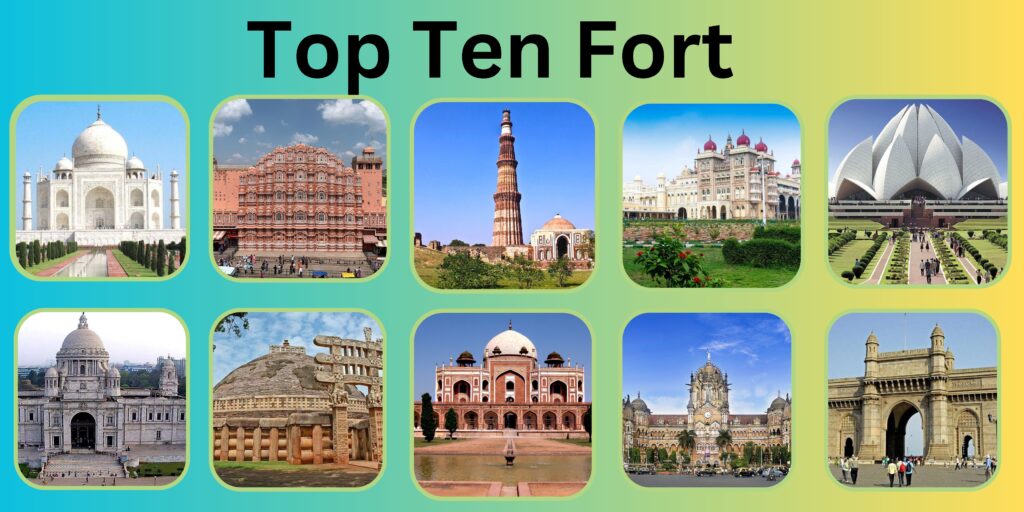
These ten buildings offer a glimpse into India’s rich history, cultural diversity, and architectural brilliance, each contributing to the country’s unique heritage.
- Taj Mahal, Agra: One of the most recognized symbols of India, the Taj Mahal is a white marble mausoleum built by Mughal Emperor Shah Jahan in memory of his wife Mumtaz Mahal. Its exquisite architecture and intricate detailing make it a UNESCO World Heritage Site.
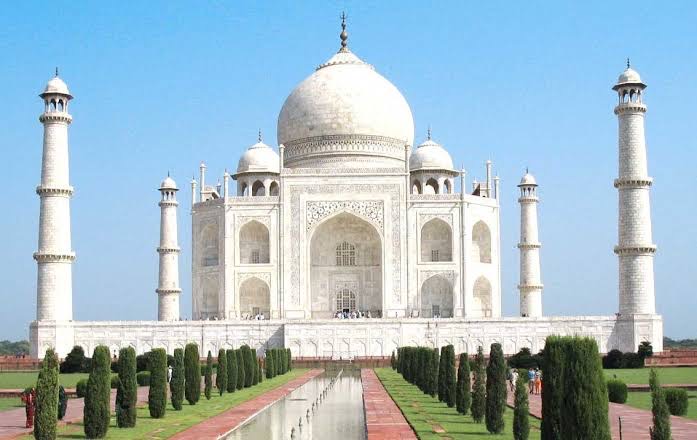
2.Qutub Minar, Delhi: This towering minaret stands as a masterpiece of Indo-Islamic architecture. Built in the 13th century, it’s the tallest brick minaret in the world and is surrounded by historic structures that highlight the Delhi Sultanate era.
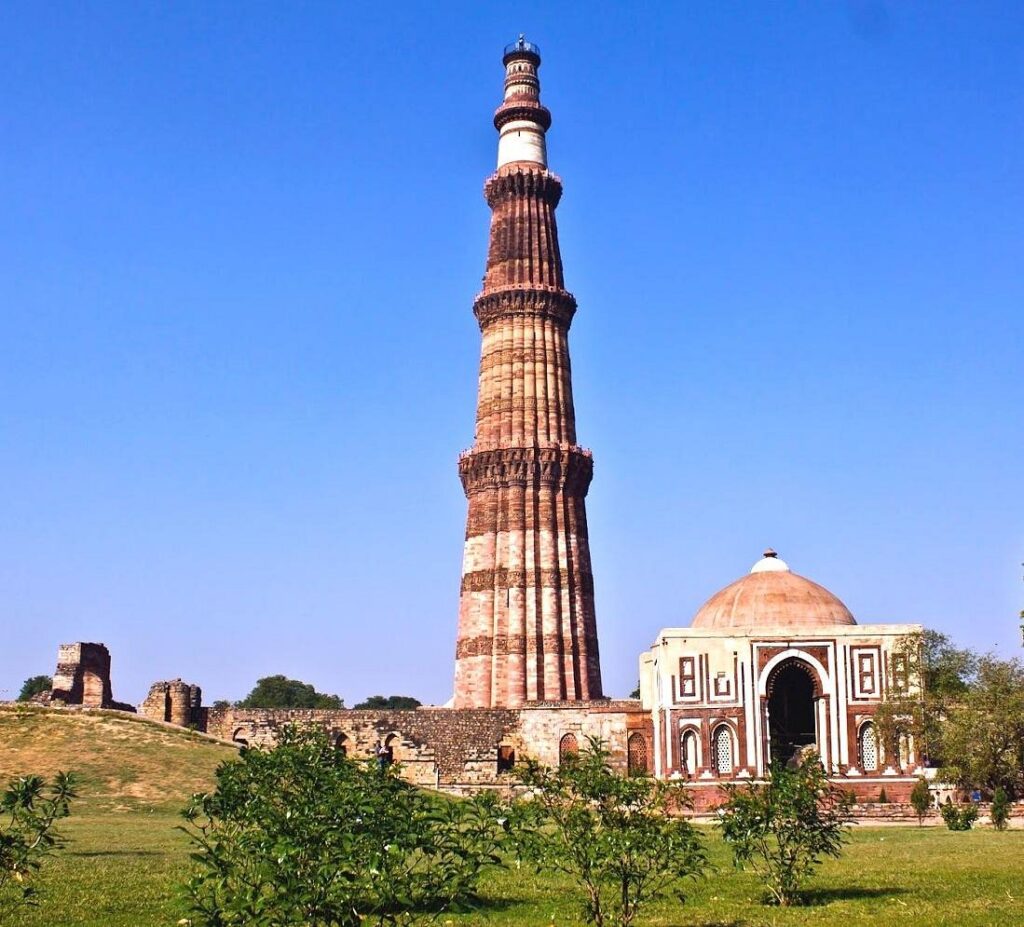
3.Hawa Mahal, Jaipur: Known as the “Palace of Winds,” this intricately designed palace features a façade with numerous small windows and latticework to allow royal women to observe street festivals while maintaining their privacy.
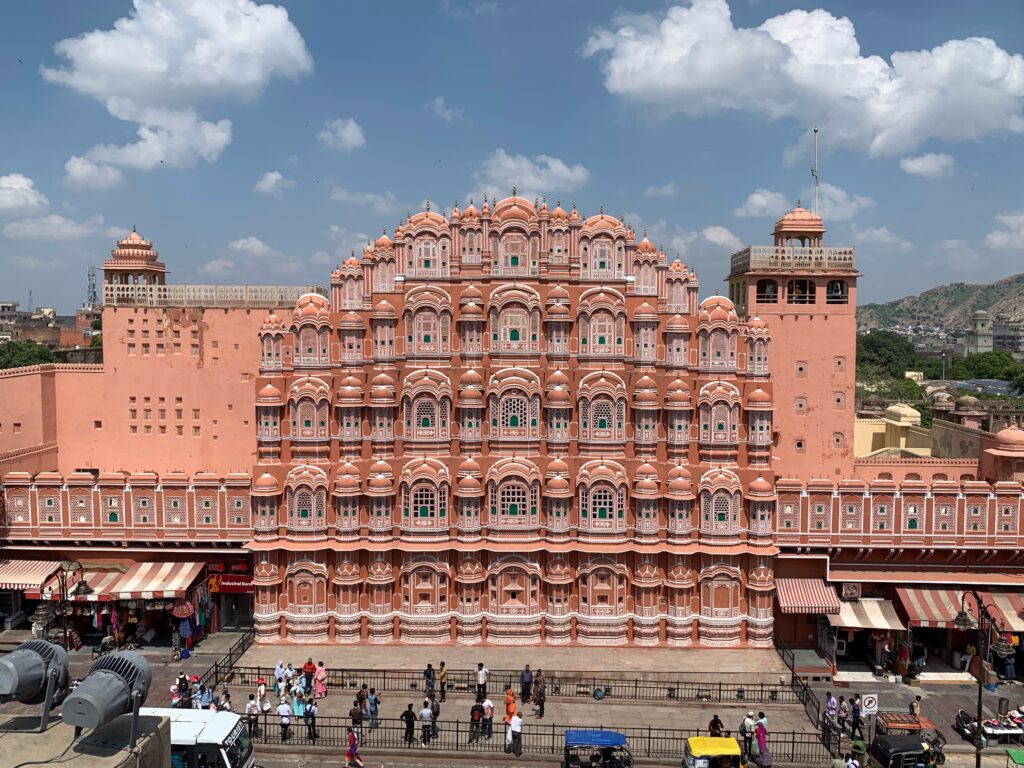
4.Mysore Palace, Mysore: A magnificent example of Indo-Saracenic architecture, this royal palace in Karnataka showcases a blend of Hindu, Muslim, Rajput, and Gothic architectural styles. It’s a stunning reminder of India’s royal heritage.
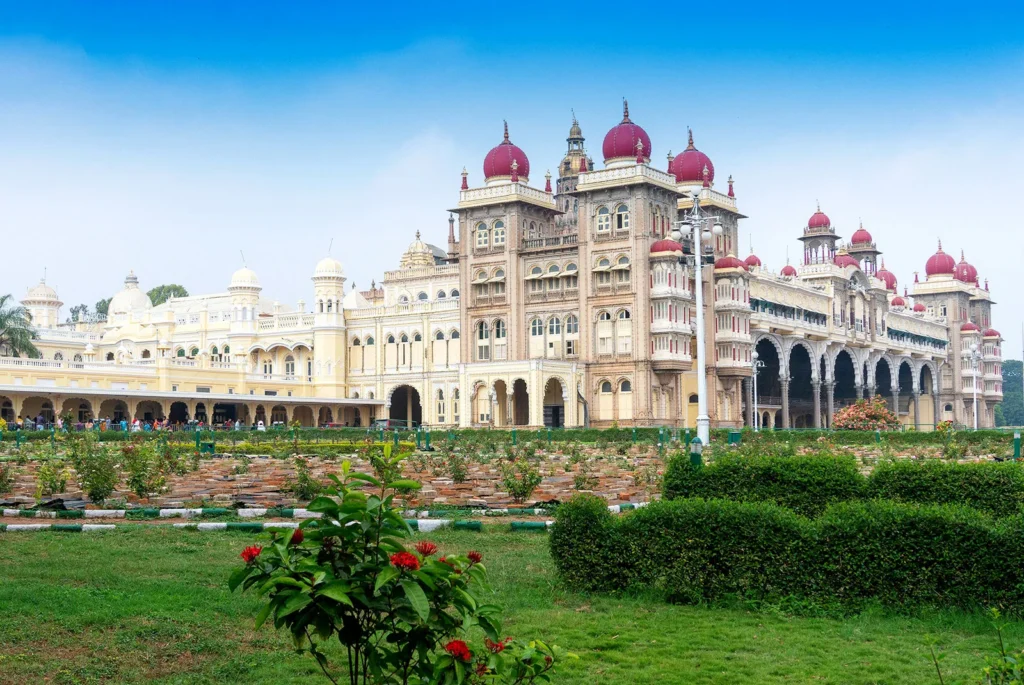
5.Lotus Temple, Delhi: The Lotus Temple’s distinctive lotus-flower shape and serene ambiance make it a prominent Bahá’í House of Worship. It welcomes people of all faiths to meditate and reflect in its serene surroundings.
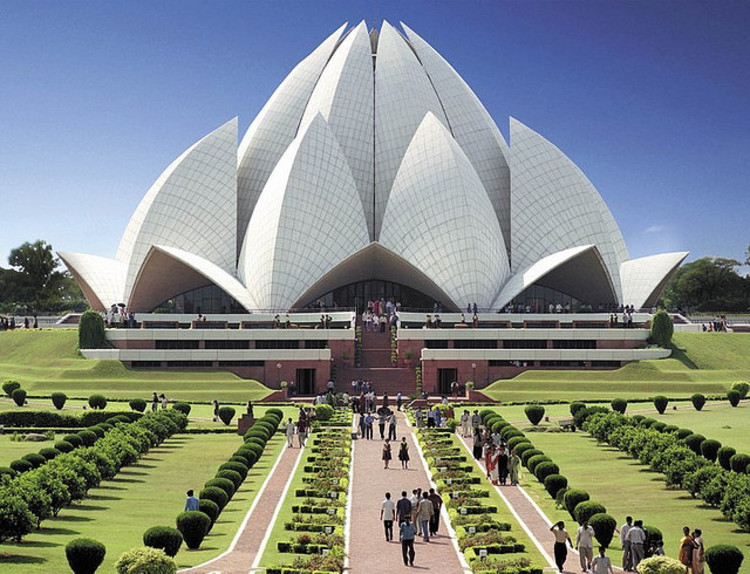
6.Victoria Memorial, Kolkata: This grand marble building is dedicated to Queen Victoria and showcases a fusion of British and Mughal architecture. It now functions as a museum, displaying artifacts from the colonial era.
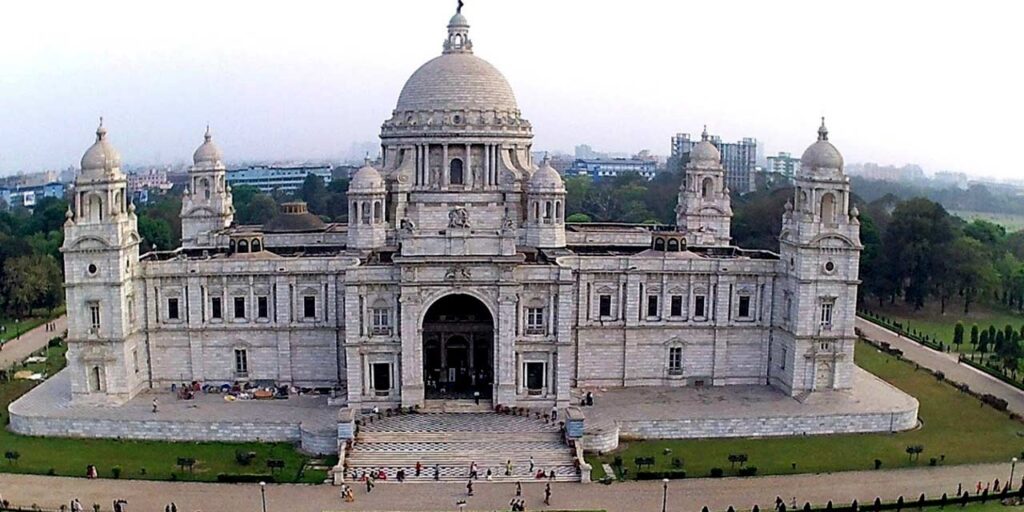
7.Gateway of India, Mumbai: Built to commemorate the visit of King George V and Queen Mary to Mumbai, this monumental arch overlooking the Arabian Sea has become an iconic symbol of the city.
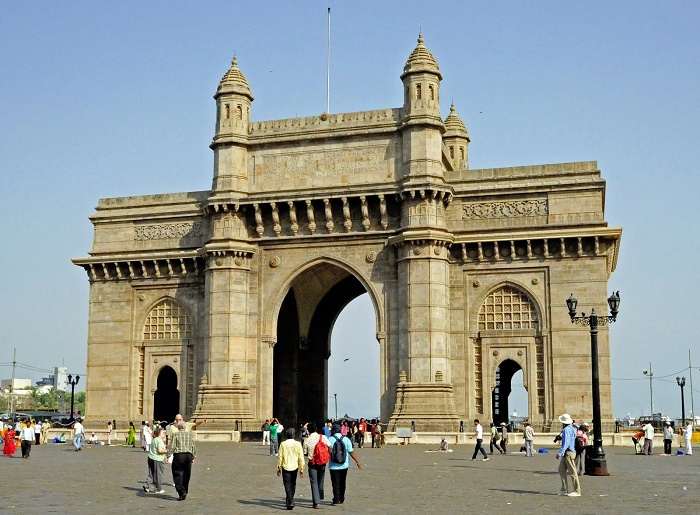
8.Chhatrapati Shivaji Terminus, Mumbai: Formerly known as Victoria Terminus, this historic railway station is an exquisite blend of Victorian Gothic and traditional Indian architecture. It’s both a functional transport hub and a UNESCO World Heritage Site.
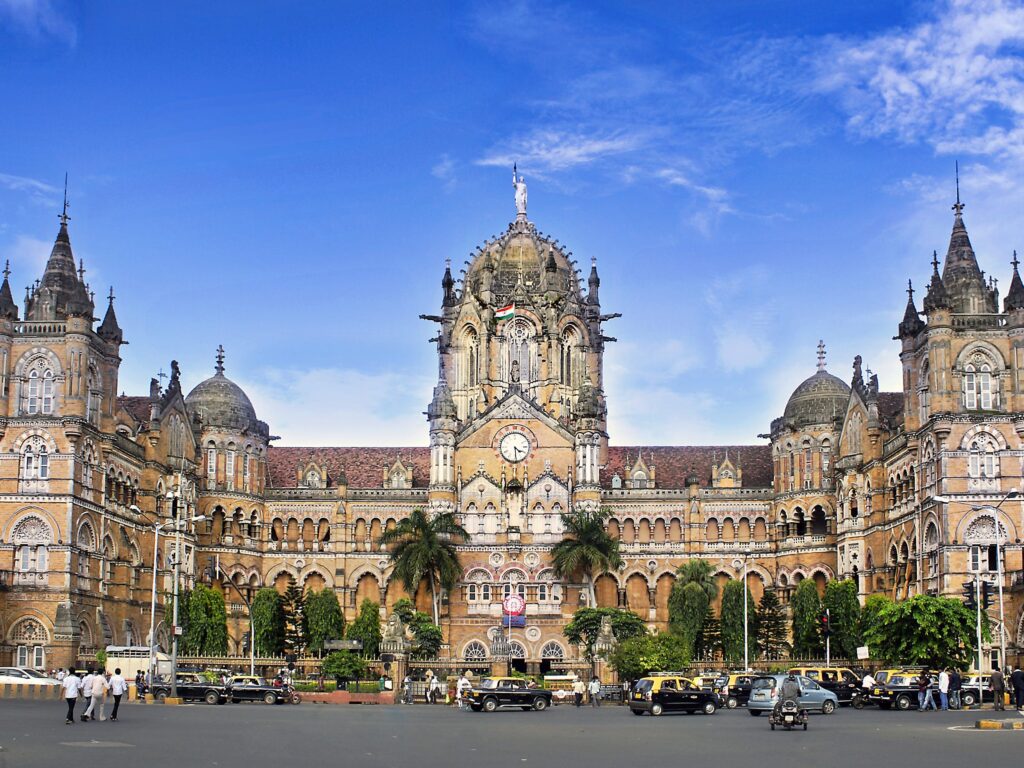
9.Humayun’s Tomb, Delhi: Considered a precursor to the Taj Mahal, this tomb is the final resting place of Mughal Emperor Humayun. Its beautiful Persian-inspired architecture set in well-maintained gardens is a UNESCO World Heritage Site.
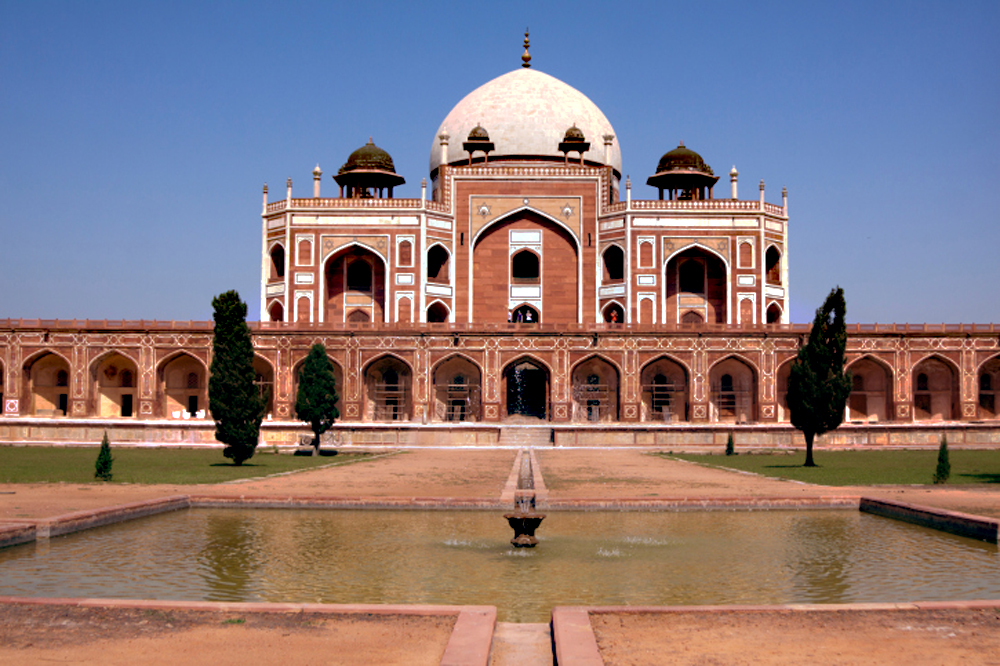
10.Sanchi Stupa, Madhya Pradesh: One of the oldest stone structures in India, the Sanchi Stupa is a Buddhist monument that holds religious significance. Its intricately carved gateways and domes depict stories from the life of Buddha.

These ten buildings offer a glimpse into India’s rich history, cultural diversity, and architectural brilliance, each contributing to the country’s unique heritage.











